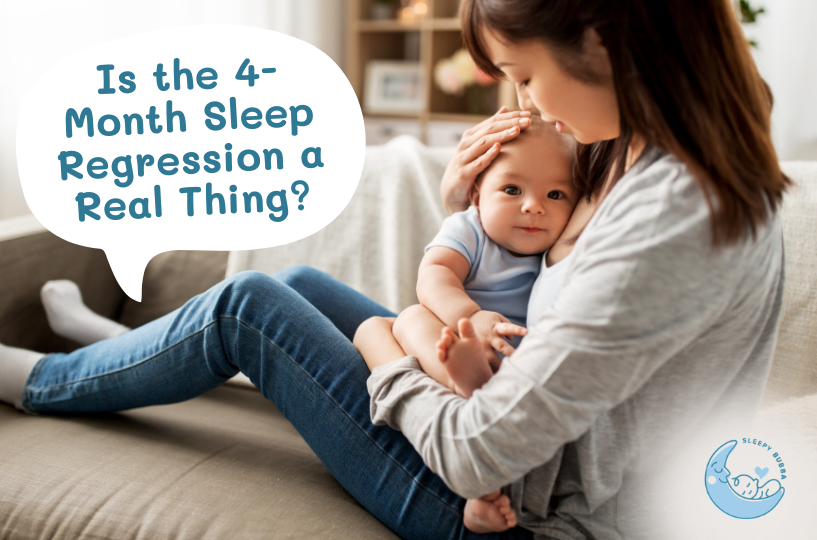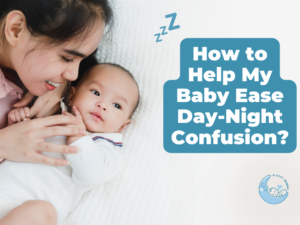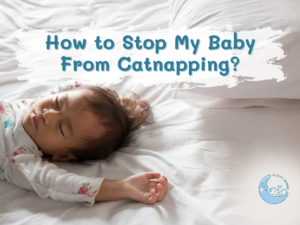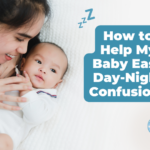Enquire Now with FREE 15 Mins Call
Is the 4-Month Sleep Regression a Real Thing?

Indeed, the 4-month sleep regression is a real phenomenon. Around the ages of 3 to 4 months, babies may begin to face sleep difficulties, even if they were previously good sleepers. This change occurs because their sleep cycles transition from newborn patterns to more adult-like patterns. As a result, their sleep is affected because adult sleep cycles consist of phases that link together and typically last between 1 – 2 hours during the night. After each cycle, the baby briefly awakens and moves to the next phase. For some babies, if they fall asleep while being rocked, bounced, or held in their parent’s arms, this change can cause them to become anxious. Some parents might consider infant sleep training in Singapore to help their baby sleep better.
What is Sleep Regression?
Imagine this: Your baby finally falls asleep after hours of rocking, only to wake up after 1 to 2 hours. He realizes that he is no longer in your arms but all alone in his cot. It can be a startling experience for him. His instinct is to cry out for you, seeking comfort and reassurance.
This situation often leads parents to believe that their baby is hungry and in need of feeding, assuming that hunger is the cause of their distress. Consequently, feeding becomes a common response to their baby’s cries, resulting in frequent night feeds that perpetuate the cycle of sleepless nights, commonly known as the 4-month sleep regression.
During the 3 – 4 month development phase, our newborn babies become more aware of their surroundings and the world becomes increasingly interesting to them. They become easily stimulated by external stimuli, such as birds singing, dogs barking, and children playing. As a result, feeding becomes less interesting to them, and the frequent night feeds that were once necessary may no longer be needed during the day. However, their circadian rhythm, the sleep-wake cycle, becomes adjusted to this new feeding schedule, leading to the repetition of 1 – 2 hour sleep cycles during the night.
How Long Does Sleep Regression Last?
Now you might be wondering, how long does this sleep regression last? Is it just a phase that will pass on its own? The answer is both good news and bad news. The effects of the regression and the frequent night wakings typically last for a week. However, anything longer than that, it might mean that they are here to stay if you don’t have a plan in place to address them. Your baby won’t magically start sleeping better or revert to their previous sleep habits. Independent sleeping is a skill that needs to be learned.
The good news is that the 4-month sleep regression doesn’t have to be a permanent struggle. At Sleepy Bubba, I can guide you through a sleep plan that will help your baby become a champion sleeper in just a few weeks. It’s never too early or too late to start fostering healthy sleep habits. Imagine your baby sleeping 10 – 12 hours straight through the night and enjoying solid naps of 1 – 2 hours during the day. With a well-established sleep routine, you’ll have the confidence to put your baby down and know they will sleep soundly. A flexible routine tailored to your family’s needs will ensure better sleep for everyone.
Ways to Overcome Sleep Regression

So, what can you do to address the challenges of sleep regression? Start fostering healthy sleep habits for your newborn baby right away. Our sleep training programs are designed to gradually teach your baby to sleep independently at bedtime and during naps. By teaching your baby how to self-soothe and put themselves to sleep at each sleep cycle, the 4-month sleep regression becomes less daunting.
To navigate this period effectively, it’s important to acknowledge the changes in your baby’s sleep cycles and accept that it’s a natural part of their development. Putting your baby down awake at bedtime allows them to learn how to fall asleep on their own, minimizing dependency on external soothing methods. Additionally, maintaining adequate feedings during the day ensures that your baby receives sufficient nourishment and reduces the need for frequent night feeds.
Ensuring your baby has appropriate wake time before naps can also contribute to better sleep. Providing enough awake time before naps promotes longer and more restful sleep. Consider transitioning from swaddling to a transitional sleeping bag, allowing your baby more freedom of movement as they grow and develop.
Conclusion
If your baby is still struggling with sleep regression around 5 – 6 months of age, remember that you don’t have to face this challenge alone. I am an infant sleep consultant in Singapore to support you until you achieve your personal sleep success story. In just a matter of weeks, your baby can be sleeping 10 – 12 hours uninterrupted in their cot, and you can confidently execute the sleep plan, even during future sleep regressions. Our tailored support will meet your baby’s developmental needs at each stage, ensuring a smoother sleep journey for your whole family.
Don’t hesitate to take the next step towards better sleep. Book a free 20-minute discovery call with us to explore how our sleep programs can help you and your family. It’s time to say goodbye to sleepless nights and hello to restful nights for both you and your baby.







